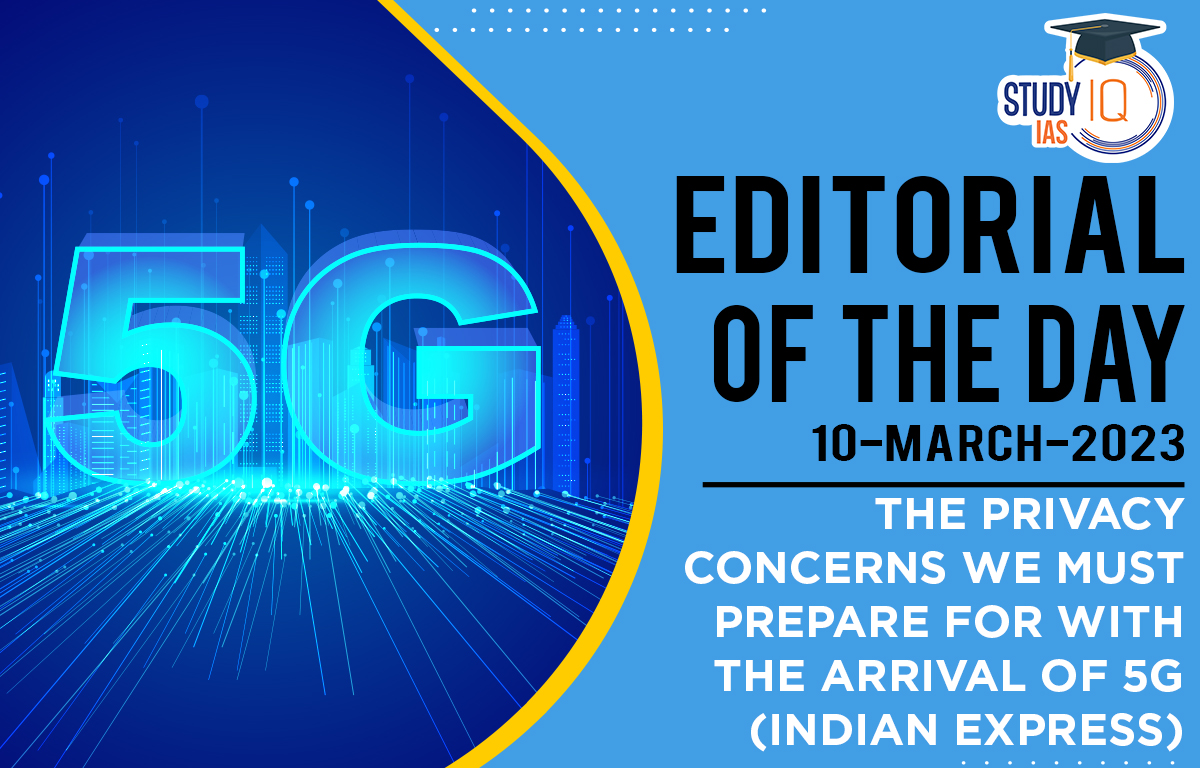Table of Contents
With the arrival of 5G technology, a large number of electronic devices will potentially be connected to the internet, increasing the threat of ransomware attacks.
- The 5G technology has been rolled out across 13 Indian cities in 2022. It aims to provide higher data speeds with ultra-low latency, enhanced capacity and better user experience.
- The increase in the bandwidth will bring our devices online, making them smart. Internet of Things (IoT) devices enabled by 5G will enhance our lives.
- 5G technology will provide faster data analytics, robotics and artificial intelligence. It will be useful in traffic management, drone operations and smart mobility solutions.
- 5G has high security standards, with its encryption features making it impossible for attackers to decode the obtained information. This will protect the confidentiality of interconnected devices.

Security-Related Concerns Regarding 5G Technology
- Inherits existing vulnerabilities: Initially, the 5G technology will be built on existing 4G infrastructure, therefore, it will inherit vulnerabilities of the past.
- Increases scope of cyber attacks: Since more devices are connected to the internet, it increases the scope of cyber attacks. Such attacks can grow exponentially if not contained in time.
- Privacy concerns: Privacy concerns are expected to grow as the number of devices connected to the network increases.
- China-manufactured components: Majority of components used for 5G technology are manufactured in China and were imported before the ban on Chinese components came into effect.
- Manufacturers of such equipment (Huawei and ZTE) have already been blacklisted by countries such as the USA and Canada.
Addressing Concerns Related to 5G Technology
- Even though the development of 5G technology is driven by market forces, governments must remain proactive on the security front.
- There is a need to have a collaborative arrangement between the government, academia and businesses.
- Multi-sectoral collaboration: The existing 5G alliance by C-DOT needs to be scaled up as a Center of Excellence that will include the IITs and Indian Computer Emergency Response Team (CERT-In) or any other national security organisation.
- Testing of features: Telecom companies can be invited to test their 5G infrastructure and ethical hackers can be invited to break into the system, thereby identifying vulnerabilities.
- Security standards: 5G service providers can be rewarded to promote adherence to security standards. Firms can be ranked on their security standards and the government can reward them through tax rebates.
Conclusion
- Concerned authorities must continue to publish advisories for end users in easily understood methods, in order to create well aware consumers.
- However, completely shifting the safety burden to citizens is not desirable. Other stakeholders must take greater responsibility.
- AI technology can help attackers to learn about the defence mechanisms and change their modus operandi. Service providers must take these into consideration.


 Serious Fraud Investigation Office (SFIO...
Serious Fraud Investigation Office (SFIO...
 Article 142 of Indian Constitution, Sign...
Article 142 of Indian Constitution, Sign...
 Pakistan-Occupied Kashmir (PoK): History...
Pakistan-Occupied Kashmir (PoK): History...





















